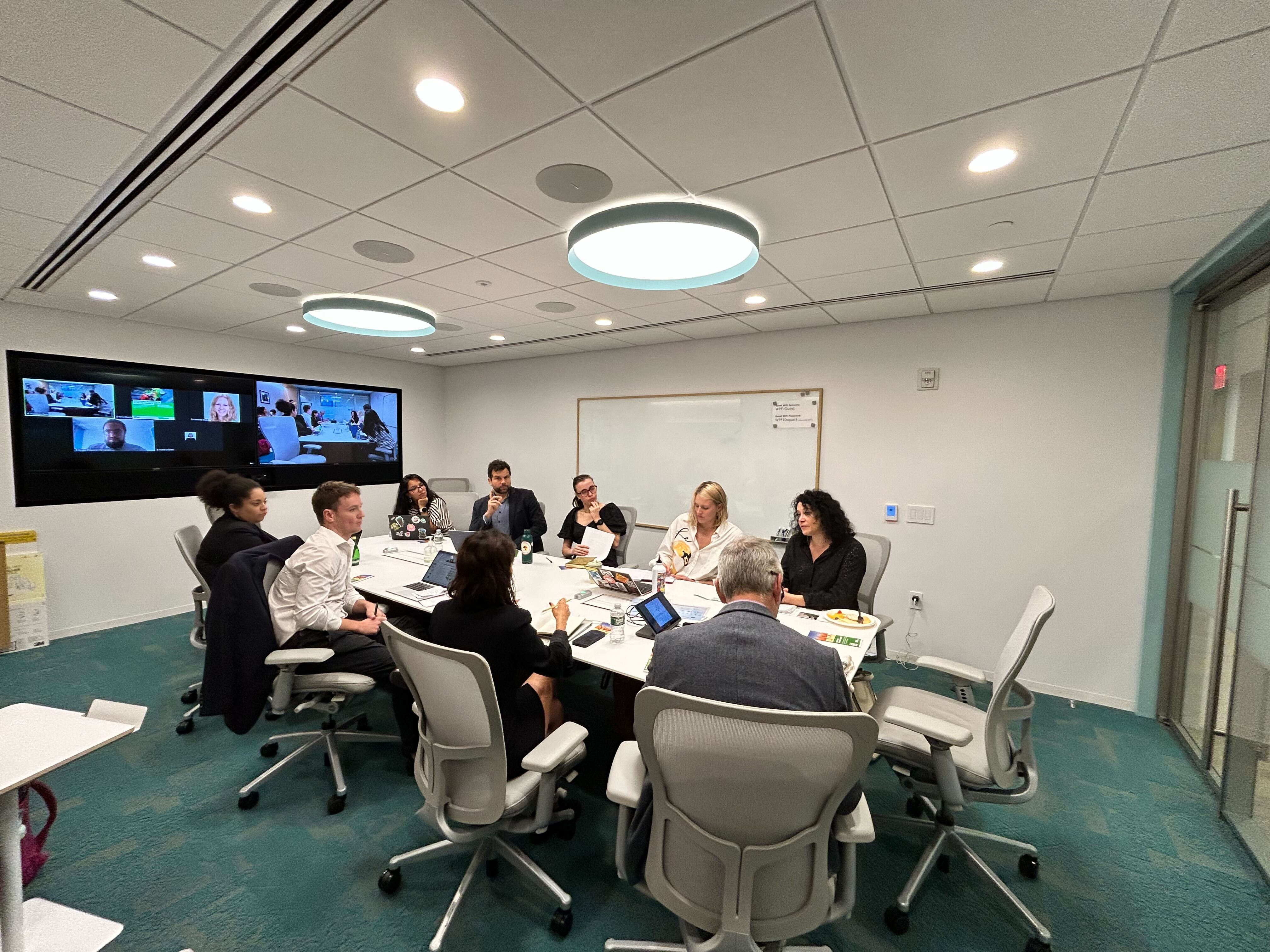
On September 23, we hosted a panel discussion at the Wellspring Philanthropic Fund offices in Manhattan as part of NYC Climate Week. The event marked the launch of CESR’s new guide, Decoding Climate Finance, and brought together leading voices from climate justice, human rights, feminist economics, and government policy. The conversation exposed the systemic failures of global climate finance and highlighted proposals to reshape the system around rights, reparations, and redistribution.
Elisa Morgera, UN Special Rapporteur on Climate Change and Human Rights, opened the session by challenging “deeply rooted assumptions in the climate regime” that prevent meaningful progress. She stressed that solutions must be led by the frontline communities most harmed by the crisis. “We often think there’s no time, or no connection between the local and the global,” she said. “But that’s inaccurate, and it is one of the barriers we must overcome.”
Morgera urged a shift away from top-down models in the Global North and toward community-led decision-making, especially by Indigenous Peoples and women. She warned that large-scale, multi-country projects often do more harm than good, while local funders are unfairly branded as risky. “We need to scale not only up, but deep and wide, learning from the local level,” she added.
Matilda Burns of the Scottish Government shared lessons from Scotland’s Climate Justice Fund, the first of its kind in a Global North country. With a budget of 36 million pounds, the fund prioritizes grants over loans and supports those most affected by climate change. Burns echoed Morgera’s call to tackle structural inequalities and announced that Scotland will advocate for scaled-up, community-led finance at COP30.
Interrogating the global financial architecture
CESR’s Matthew Forgette underlined the premise of CESR’s climate justice agenda: that climate finance injustice is inseparable from wider economic structures such as tax abuse, debt traps, and fossil fuel subsidies. “The human rights approach can be a gamechanger,” he said, “because it shifts the perception of equitable climate finance from being good policy or charity to being an international legal obligation.”
Katie Tobin of WEDO built on this point, noting that the Global North is responsible for 92 percent of emissions overshoot and 74 percent of material resource use. She stressed that tax is not just a revenue source but a structural intervention. “Replacing fossil fuels with renewables does not automatically mean justice,” she warned, pointing to the fact that more than 80 percent of lithium projects are located on Indigenous territories. Tobin also emphasized the need for demilitarization and debt cancellation, citing the Rabat meeting where feminist and economic justice movements set out a shared agenda.
Adriana Vásquez of La Ruta del Clima brought the focus to the communities already facing the devastation of climate breakdown. She argued that current Loss and Damage mechanisms are inadequate and must evolve into reparations-based finance. “Loss and Damage is the result,” she said. “Reparation is the action.”
Vásquez called for direct access to climate finance for communities, insisting they know best what they need. She pointed to Article 8 of the Paris Agreement, which establishes cooperation, as a potential legal foundation for demanding funds. “Redistributive, reparative finance must compensate for past harms and be rights-based,” she concluded. “It implies a transformation of the financial system itself.”